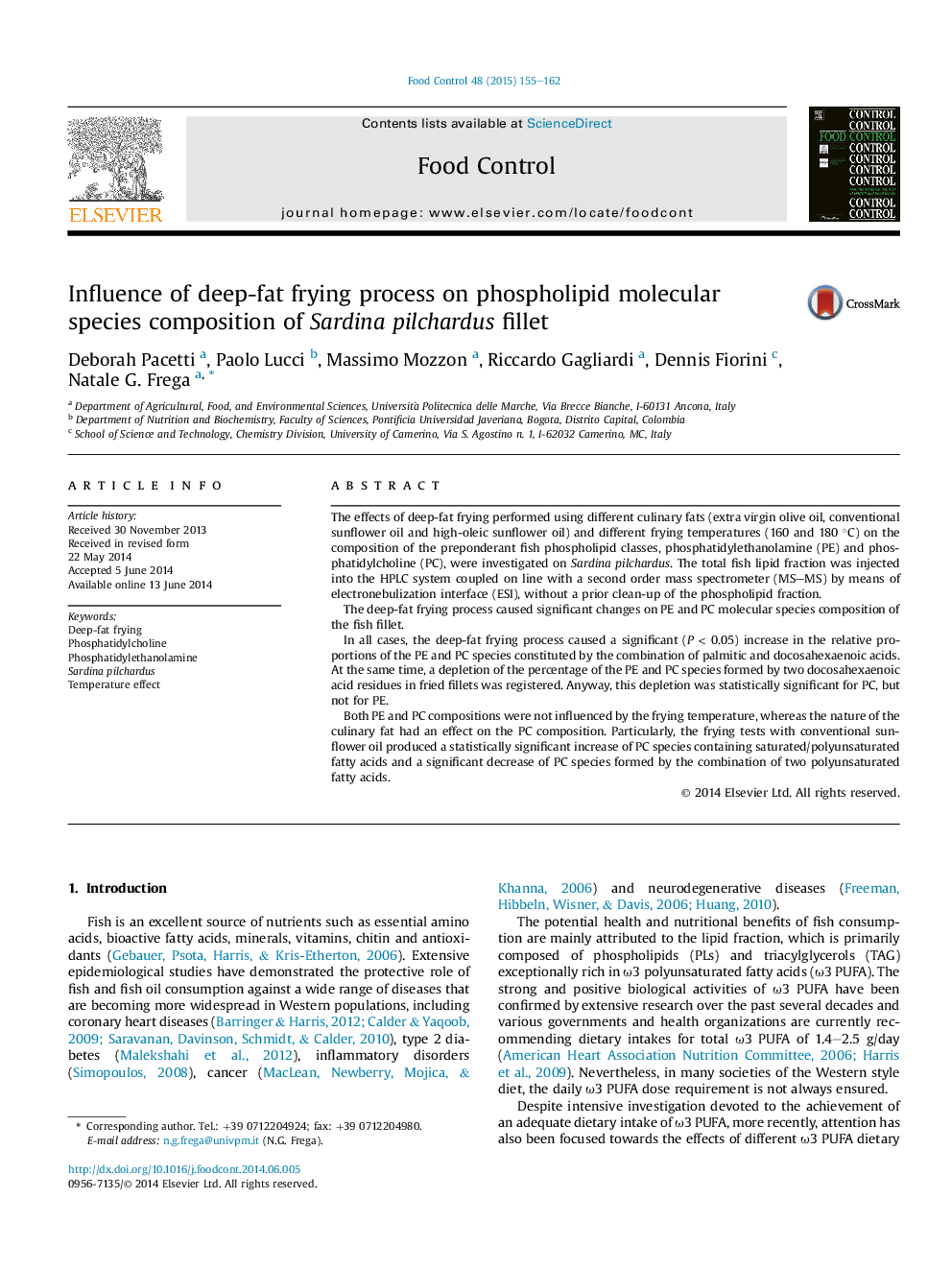| کد مقاله | کد نشریه | سال انتشار | مقاله انگلیسی | نسخه تمام متن |
|---|---|---|---|---|
| 6391580 | 1628414 | 2015 | 8 صفحه PDF | دانلود رایگان |
- Analysis of phospholipid play a key role on the control of the fried fish quality.
- Frying led to a significant change on fish phospholipid molecular species profile.
- Phosphatidylcholine profile was more affected by the frying than phosphatidylethanolamine.
- Phosphatidylcholine profile changed according to the nature of frying oil.
- Frying temperature had no effect on all phospholipid profiles.
The effects of deep-fat frying performed using different culinary fats (extra virgin olive oil, conventional sunflower oil and high-oleic sunflower oil) and different frying temperatures (160 and 180 °C) on the composition of the preponderant fish phospholipid classes, phosphatidylethanolamine (PE) and phosphatidylcholine (PC), were investigated on Sardina pilchardus. The total fish lipid fraction was injected into the HPLC system coupled on line with a second order mass spectrometer (MS-MS) by means of electronebulization interface (ESI), without a prior clean-up of the phospholipid fraction.The deep-fat frying process caused significant changes on PE and PC molecular species composition of the fish fillet.In all cases, the deep-fat frying process caused a significant (P < 0.05) increase in the relative proportions of the PE and PC species constituted by the combination of palmitic and docosahexaenoic acids. At the same time, a depletion of the percentage of the PE and PC species formed by two docosahexaenoic acid residues in fried fillets was registered. Anyway, this depletion was statistically significant for PC, but not for PE.Both PE and PC compositions were not influenced by the frying temperature, whereas the nature of the culinary fat had an effect on the PC composition. Particularly, the frying tests with conventional sunflower oil produced a statistically significant increase of PC species containing saturated/polyunsaturated fatty acids and a significant decrease of PC species formed by the combination of two polyunsaturated fatty acids.
Journal: Food Control - Volume 48, February 2015, Pages 155-162
